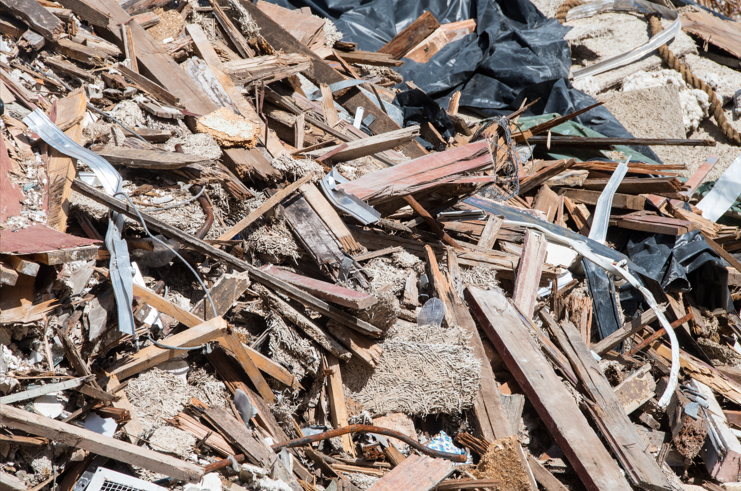Industrial Waste Recycling | Types, Methods and How They Can Benefit Your Business
access_time13/12/2024

Industrial waste recycling is a pivotal component of sustainable business operations, offering environmental benefits and enhancing economic efficiency. By repurposing waste materials, companies can reduce their reliance on virgin resources, decrease energy consumption, and comply with regulatory standards.
Common Recyclable Industrial Waste Materials
Metals: Metals are among the most recyclable materials in industrial settings due to their inherent durability and value.- Ferrous Metals (Iron and Steel): These are abundant in many industries, including construction materials, automotive components, and machinery.
- Non-Ferrous Metals (Aluminium, Copper, Zinc): Aluminium recycling is particularly impactful, requiring significantly less energy than primary production.
- Polyethylene Terephthalate (PET): Widely used in packaging and textiles, PET is one of the easiest plastics to recycle into new products like fibers and containers.
- High-Density Polyethylene (HDPE): Commonly found in pipes, drums, and containers, HDPE is valued for its toughness and ease of recycling.
- Cardboard Packaging: Used extensively in shipping and storage, corrugated cardboard is recycled into new boxes or insulation materials.
- Industrial Paper: Waste paper from offices or manufacturing operations is repulped to create products like tissue, newsprint, or recycled paperboard.
- Damaged Wooden Pallets: These can be repaired, reused, or processed into wood chips for biofuel or mulch.
- Engineered Wood Products: Wood waste can be repurposed into products like particleboard or medium-density fiberboard (MDF).
- Concrete and Asphalt: These materials are crushed into aggregate for use in roadbeds, foundations, or new construction projects.
- Gypsum (Drywall): Waste drywall can be recycled into new drywall or used as a soil conditioner.
- Bottles and Jars: These can be melted down and reformed indefinitely without losing quality.
- Recycled Glass from Windows : This can be used to create new glass items or transformed into fiberglass insulation.
- Recycled Tires: Tires can be shredded using industrial shredders and repurposed into crumb rubber for playground surfaces, roads, or even new tires.
- Industrial Rubber Scrap : Conveyor belts and hoses are often repurposed or processed into raw materials for new products.
- Metals and Rare Earths: Gold, silver, platinum, and rare earth metals in electronics can be recovered through advanced recycling techniques.
- Plastic Casings and Wires: These components are shredded and recycled into raw materials for new electronic devices.
Methods of Recycling Industrial Waste
- Mechanical Recycling This involves physically processing waste materials to prepare them for reuse without changing their chemical composition.
- Chemical Recycling Chemical processes break down materials into their original components, allowing them to be reused as raw materials.
- Downcycling This involves converting waste materials into new products of lower quality or functionality than the original.
- Electrochemical Recycling Electrochemical methods recover valuable materials from industrial waste, particularly in the electronics and metal industries.
- Industrial Symbiosis This approach involves industries collaborating to exchange waste materials, turning one industry’s waste into another’s resource.
- Co-mingled Recycling A system where materials like paper, plastics, metals, and glass are collected together instead of being sorted at the source is Co-mingled recycling.
- Advanced Sorting Technologies Innovative sorting systems, such as AI-driven robotic sorting, optical scanners, and magnetic separators, are pivotal in ensuring the success of recycling methods.
Benefits of Industrial Recycling for Your Business
- Revenue from Recycled Materials Many industrial waste materials, such as metals, paper, and plastics, have resale value. Recycling these materials can generate an additional revenue stream.
- Reduced Raw Material Costs Recycling materials allows businesses to reuse them in their production processes, minimizing the need for purchasing new raw materials.
- Improved Regulatory Compliance Governments worldwide are imposing stricter regulations on industrial waste disposal as these are the Future of Waste and Recycling Solutions. Adopting recycling helps businesses comply with these rules and avoid penalties.
- Energy Savings and Lower Carbon Footprint Recycling consumes significantly less energy compared to producing materials from scratch, reducing greenhouse gas emissions and lowering operational costs.
- Access to Tax Incentives and Grants Governments often provide financial incentives, such as tax credits or grants, to businesses adopting sustainable practices like recycling.